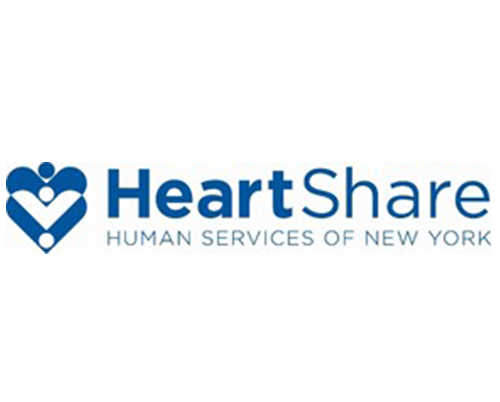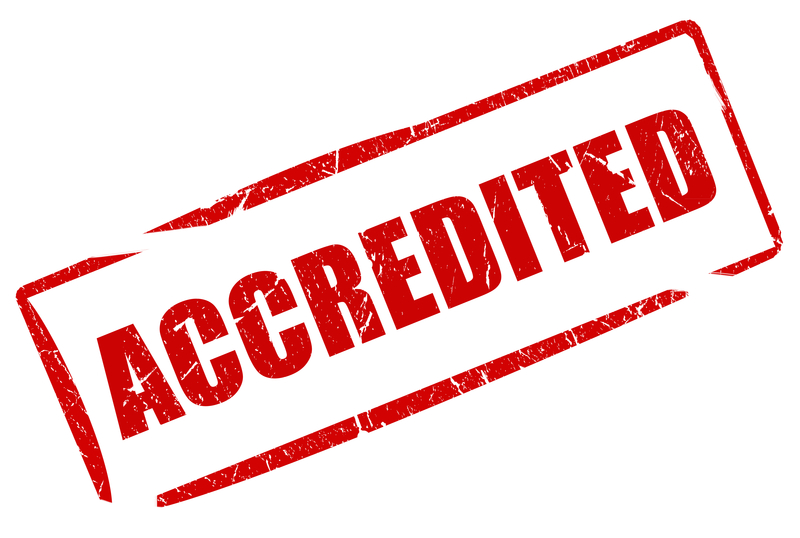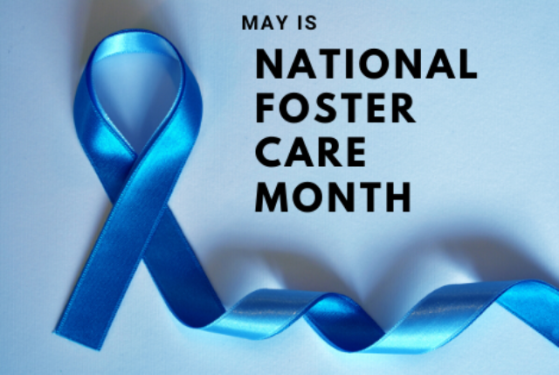Accreditation is a lot of work, but that doesn’t mean it has to be all paperwork and surveys! Watch this video and discover strategies for creating a rewarding accreditation journey for your team!
What is Accreditation in Action™?
Accreditation in Action™ is an ongoing blog series that highlights organizations which have been through the accreditation process. Here accredited entities discuss their journey and the benefits realized. If you would like your organization featured, call us at 212.209.0240 or email Peggy Lavin.
Pine River Institute CEO, Vaughan Dowie, Sits Down with Accreditation Guru
 Located near Shelburne, Ontario, Pine River Institute is a residential treatment center and outdoor leadership experience for youth 13 to 19 years old struggling with addictive behaviors and often other mental health issues. Shelburne is approximately 60 miles northwest of Toronto.
Located near Shelburne, Ontario, Pine River Institute is a residential treatment center and outdoor leadership experience for youth 13 to 19 years old struggling with addictive behaviors and often other mental health issues. Shelburne is approximately 60 miles northwest of Toronto.
Pine River Institute’s decision to apply for and maintain national accreditation was based solely on internal drivers – commitment to quality and safety and to increase parents’ confidence.
Why did Pine River utilize a consulting service?
Eight or nine years ago, Pine River Institute was getting ready for its Council on Accreditation (COA) first re-accreditation on-site survey and the key staff involved in the original, initial accreditation process was no longer with Pine River Institute. Pine River Institute’s CEO, Vaughan Dowie, met Jennifer Flowers, Founder & CEO of Accreditation Guru, Inc. at a COA training event in New York City.
During a conversation with Jennifer that he learned that there were accreditation consulting services available for organizations like Pine River Institute.
Why did Pine River engage Accreditation Guru?
Knowing that the pre-work is most important and wanting good support, he engaged Jennifer. He selected Accreditation Guru, Inc because he found Jennifer to be very open to help; very knowledgeable; and, she had a good understanding of what was being asked of Pine River Institute by COA.
What was Pine River’s experience with Accreditation Guru like?
Vaughan’s experience with Accreditation Guru was very positive. With Accreditation Guru’s support, Pine River Institute was able to successfully navigate the accreditation process. Jennifer was always available; always able to answer questions; always came through! Her approach was down to earth with realistic answers. In fact, his initial experience led to “repeat business” and Pine River Institute has partnered with Accreditation Guru several times for COA re-accreditation. Each time, less support was needed as Jennifer helped PineRiver Institute to learn to “walk by itself.
Uniqueness of Pine River
Pine River Institute is unique in that it provides a “traditional” residential as well as an outdoor wilderness therapeutic program. Although both programs involve risk and exceptional risk management, the wilderness program has greater risk.
All programs are somewhat unique and special, but accreditation is as close as you are going to get to a third-party oversight/as close as you can get to a proxy for quality. Parents must have faith in an organization keeping their children safe. Other quality indicators (such as testimonials) can only go so far. When you are placing your child in a place where you know no one, you want some assurance of safety and quality.
Pine River Institute has 36 beds with a current waiting list of 200 children. If parents cannot wait for a Pine River Institute opening and ask Vaughan for advice on selecting another organization, he always advises the parents to only consider accredited programs. In order to be a “grown-up” you need to be nationally accredited.
To learn more on accreditation consultation, call us at 212.209.0240 or email Rocio@AccreditationGuru.com for assistance in setting up a commitment-free phone call with our CEO, Jennifer Flowers.
Accreditation In Action – Congratulations HeartShare and HeartShare St. Vincent’s Services of New York City!
 We congratulate HeartShare Human Services of New York and HeartShare St. Vincent’s Services of New York City on receiving their re-accreditation through COA, Council On Accreditation!
We congratulate HeartShare Human Services of New York and HeartShare St. Vincent’s Services of New York City on receiving their re-accreditation through COA, Council On Accreditation!
Since its founding in 1914, HeartShare and its Family of Services has expanded to more than 100 program sites in Brooklyn, Queens and Staten Island and operates in 60 of the 62 New York counties through energy grants. HeartShare’s responsiveness to the needs of the New York community guides its innovation. When the community desired special education classrooms, HeartShare opened a school for children with autism. When young adults aging out of foster care required a safety net, HeartShare St. Vincent’s Services created the American Dream Program to help youth achieve their college and career dreams.
“Imagine that you are coordinating two re-accreditations  for large multi-service organizations at the same time. Accreditation Guru worked diligently with us to make sure our responses were clear and concise, turning this into a learning process that helped our organizations strengthen their best practices and alleviate challenges. In the end, we not only submitted our self-studies three days before the due date, but also received two expedited re-accreditations. This would have been impossible without the assistance of Accreditation Guru.” – Stanley Capela, Vice President of Quality Management
for large multi-service organizations at the same time. Accreditation Guru worked diligently with us to make sure our responses were clear and concise, turning this into a learning process that helped our organizations strengthen their best practices and alleviate challenges. In the end, we not only submitted our self-studies three days before the due date, but also received two expedited re-accreditations. This would have been impossible without the assistance of Accreditation Guru.” – Stanley Capela, Vice President of Quality Management
For more information on HeartShare Human Services of New York – visit their website.
For more information on HeartShare St. Vincent’s Services of New York City – visit their website here.
Accreditation In Action – Congratulations Shamah Autism Center!
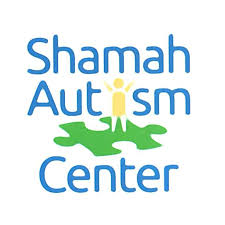 We congratulate Shamah Autism Center on achieving their three-year accreditation through CARF International!
We congratulate Shamah Autism Center on achieving their three-year accreditation through CARF International!
Shamah Autism Center, located in Saudi Arabia, is a special education school providing education for children 3 to 12 years with autism spectrum disorders, Asperger syndrome and associated social and communication difficulties.
“We are extremely grateful for Accreditation Guru for the consultation services provided throughout our survey preparation process. We extend special thanks and appreciation to Carol Smith for her time and effort to support Shamah Autism Center to obtain the three-year CARF accreditation. She was always accessible, and ready to answer all our questions and guide us. The online mock survey helped us figure out the areas needing improvement and thus be well-prepared for the survey. CARF surveyors were very impressed with our readiness. We strongly recommend Accreditation Guru for any organization seeking CARF accreditation.” – Sokynah Al-abkari, Quality Assurance Specialist, Shamah Autism Center.
To learn more about this organization – visit their website.
Lutheran Child and Family Services Receives Council on Accreditation 2019 Innovative Service Award
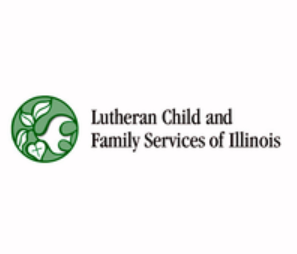 The Council on Accreditation is one of the nation’s premier accrediting bodies for human service organizations. Out of 75 applicants for the agency’s prestigious 2019 Innovative Practices Award, which recognizes “successful approaches to management and service delivery practices adopted by our accredited organizations,” the Regenerations program at Lutheran Child and Family Services of Illinois received the distinction.
The Council on Accreditation is one of the nation’s premier accrediting bodies for human service organizations. Out of 75 applicants for the agency’s prestigious 2019 Innovative Practices Award, which recognizes “successful approaches to management and service delivery practices adopted by our accredited organizations,” the Regenerations program at Lutheran Child and Family Services of Illinois received the distinction.
The program aims to get “dually-involved” youth – foster care children who are also caught up in the criminal justice systems – on the right track. In Illinois, many detained or imprisoned foster care youth remained incarcerated long after their sentences expired because the state lacked the appropriate resources to serve them.
Attesting to the program’s success, 300 participants have been released from detention or prison an average of 42 days beyond their sentences, compared with 116 days for a comparable population. Nine out of ten youth in Regenerations avoid re-incarceration and the program places 100% of its population outside of residential care – versus 37% for the comparison group. And, the program costs $118 per day per youth served as opposed to $300 to $500 a day for residential care.
Accreditation Guru spoke with Mike Bertrand, president and CEO of Lutheran Child and Family Services and a co-founder of the Regenerations program.
Accreditation Guru: How did this program get started?
Mike Bertrand: There was a large hole and an under-served population that was being dealt with in an inappropriate way. At the time in Illinois, we had an extensive amount of youth either in juvenile or adult prison being kept past their release date because there was no program or place for them to go.
AG: So you came up with specific strategies.
MB: We knew that we had expertise in the child welfare world, but we didn’t have expertise in the criminal justice or juvenile delinquency realm. So we sought partners, including Youth Advocate Programs, with more experience in the criminal justice arena around the country. From there, we did a search with the assistance of Chapin Hall at the University of Chicago to find programs that we could learn from and we couldn’t locate anything. So Chapin Hall and LCFS – in consultation with Youth Advocate Programs, as well as the Illinois Department of Children and Family Services – put our heads together and used what we felt were state-of-the-art interventions in terms of how we could achieve successful outcomes for youth.
AG: If you were to boil down the keys to success, what would they be?
MB: The culture we built in the program comes down to Never Give Up. Most of these kids are used to having promises made and then they screw up and people walk away. You can dislike the behavior but not the individual doing the behavior. It’s not like we excuse it when we have a youth re-offend or do something inappropriate, but that doesn’t devalue the person.
AG: Can this program be replicated?
MB: To be successful, you have to have a significant risk tolerance with this population because you have significant behavior that needs to be dealt with. You also need to have a strong belief in kinship care. Our success in deflecting youth from residential placement has largely relied on relatives. The most important things are having a real heart for the population and the problems that come with them, as well as having a belief in kinship care and the willingness to adhere to the code of No Rejects, No Ejects.
AG: You also license foster families.
MB: Not all youths are placed with relatives. About half are placed with licensed foster parents that we recruited and trained and take through the state’s licensing process. We make sure they have the heart and the willingness to provide a home and support for kids who are trying to go a different route. We’ve selected and recruited people for this population and we also have longstanding foster parents that we felt would be good with these youth.
AG: Regenerations provides a lot of assistance. Is some of that financial on top of counseling and other services?
MB: We create individualized services for each youth in terms of what they need. So yes, if needed, we may have to move a family out of a certain neighborhood either to avoid gang territory they need to walk through or if they’re at risk in that territory that has some gang activity and want to get out of it and avoid a peer group that may use violence. We also hire folks who know how to navigate the communities and the informal structures that exist in those communities within Chicago. If necessary, we will provide monetary assistance. We will rent a truck and have staff help move or provide a first month’s deposit if a family doesn’t have that. We have also supported work efforts. If a youth is trying to build on his or her strength, say be an auto mechanic, for example, if they have done well in a traditional structured environment and can tolerate that type of program, we’ll send them to community college. But if they cannot, we’ll go to a community resource. We’ll ask the local repair shop around corner if they’re willing to give them a chance and we’ll pay their salary for the first couple of months and if they work out, then they pick up that salary. That’s the only time we put money into the youth’s pocket, other than the allowance they’re required to receive under state standards.
AG: How long have you been accredited by COA and how has accreditation contributed to the program’s success?
MB: That’s a good question. I know we were one of the first in Illinois to be accredited but we’ll have to check [37 years]. Meeting the national standards for quality and the standards of what a human services organization that’s focused on quality should look like helps provide a yardstick and a guide in all of our programs. When we designed Regenerations, [being accredited] helped to ensure that quality people with the proper education and background, that the proper mix of professional services are in place and that the administrative standards that we have and the metrics are in place to support the staff that is doing very difficult work.
AG: The avoidance of residential care mirrors the goals of the 2018 federal Family First Prevention Services Act.
MB: We realized that residential treatment was not the appropriate services for our primary population. That is what Illinois was doing – sending every kid who came out of prisons straight into residential, but many of the kids did not have serious mental health issues that needed residential treatment. It was really more, for lack of a better term, the street behavior. So they didn’t do well in residential. In fact many of them ran away, which violated their parole and they’d go back into prison. What we did was say “let’s put them where they want to go.” We know in foster care and child welfare that when kids run away, 99% of the time we know where they go – right back to relatives or whomever they deem as their family. So Illinois would cut them off from services, but we said “let’s give them the same level of service no matter where they’re at and put them where they’re going to run away to anyway.” Any time a child can be cared for in the least restrictive environment possible, that’s what’s appropriate.
The Advantages of Accreditation
Some human service agencies view accreditation as a luxury. Others see it as a hassle. Yet the benefits are undeniable.
Achieving national accreditation announces to the world that your organization strives to be the best it can be. That’s hard work, but the process sets you on the course for long-term greatness.
Attempting to cultivate a culture of excellence and reach lofty goals enhances your reputation, but accreditation also offers more practical benefits: it’s a reliable way to increase revenue and decrease costs, objectives that are valued by almost every human service agency.
Accreditation Requirements
Due to the advent of the Family First Prevention Services Act (FFPSA), many child welfare organizations that provide residential, out-of-home care and seek federal government funds are required to be accredited, a mandate that takes effect beginning in October of this year (though states have the option to delay the process for up to two years).
Several states also require that various types of service providers become accredited as a qualifying step toward earning their license or receiving higher reimbursement rates.
Culture of Excellence
Without question, accreditation signals to potential funders and clients that your organization adheres to high standards, internal cohesion and exemplary service delivery.
Other benefits include improved internal and external stakeholder communication and enriched staff training programs that, in part, lead to enhanced services to clients.
The results of a questionnaire sponsored by the Council on Accreditation affirm these assertions:
* 94 percent of respondents agree that the process “improves transparency and accountability”
* 86 percent contend that it “improved outcomes for the people they serve”
* 90 percent acknowledge that it “improved their quality of services”
Gaining accreditation from a prominent agency also demonstrates your commitment to reach beyond the minimum licensing standards and maintain strong management, program consistency, financial controls, outcome measurements and continuous improvement.
Financial Incentives and Quality Improvement
Beyond the cultural benefits to earning accreditation, there are more practical reasons to seek this distinction. According to The Joint Commission, a prominent accrediting agency, the accomplishment beefs up your bottom line by increasing reimbursement rates, in part by reducing paperwork preparation time.
Accreditation forces organizations to focus on quality improvement and measure outputs and outcomes of deliverables, which both funders and stakeholders are increasingly demanding.
Planning service offerings and maintaining meticulous documentation can attract additional recognition and funding sources from governments, foundations, grant makers and individual donors.
It also boosts referral volume. The Joint Commission contends that other positive outcomes include an increased “ability to work with a broad array of clients” that improves “an organization’s ability to participate in referral networks, thus potentially increasing the value of referrals.”
The Joint Commission further found that “payers want to work with organizations that provide high quality services, which helps elevate their brand” and pay public relations and marketing dividends.
Accreditation decreases risk due to the development of management plans, which in turn lowers liability and insurance costs. Data collection, an increased effectiveness of care and improved intake billing also streamline costs.
A recent study sponsored by CARF International, another accrediting body, compiled startling statistics demonstrating that CARF-accredited programs experienced a 26 percent increase in persons served annually, a 37 percent increase in conformance to quality standards and a 37 percent increase in annual budget dollars programs from before their first survey as compared to their latest survey.
Accreditation in Action™
“The accreditation and re-accreditation process helped us raise the bar for our staff and the population that we serve,” said Hughes Johnson, managing director of compliance and performance improvement at Memphis-based Youth Villages, which operates in 14 states across the country, shared his organization’s experiences with accreditation.
“It’s a tough process with a large number of standards, but it helped us develop a defined policy that holds us accountable.”
According to Elizabeth Carey, president and CEO at Starr Commonwealth, which offers programs for children and families in Albion, Michigan, her organization is dedicated to “performing at the highest levels for the children, families and communities we serve.” Therefore, “achieving and maintaining accreditation is a critical factor to ensuring high quality.”
The Payoff
Many human services agencies claim that they adhere to upholding high ethical and client service standards.
Far from being a chore, achieving accreditation has become a necessity for all human service organizations participating in today’s competitive environment. In addition to sending a definitive sign that quality and consistent professionalism permeate your organization’s culture, it offers tangible benefits that pay dividends every day.
For more information or for assistance with becoming nationally accredited, contact us at info@AccreditationGuru.com.
Addiction Treatment Centers Need Certification to Advertise on Facebook
Last year, Google barred advertisements from appearing in search results for addiction treatment centers in the United States. Starting last month, however, the company allowed centers with LegitScript Addiction Treatment Certification to run ads on its platform.
Now, Facebook recently announced that it will also require that addiction treatment centers achieve certification before they are approved to advertise on its properties, including Instagram and Messenger. LegitScript, a verification and monitoring service for online pharmacies, charges $995 for initial certification and $1,995 for annual vetting.
Google and Facebook’s advertising restrictions stemmed from complaints about addiction centers that targeted people suffering from addiction, offering sub-par clinical services to the highest bidder or making out-of-state recommendations solely to collect a referral fee. Other disreputable addiction treatment centers inflate staff qualifications and engage in improper billing.
Still, it is important to remember that certification represents a lower standard than accreditation. There is no need to rely on random internet searches to find reputable addiction treatment providers: just determine if a given organization is nationally accredited by an independent accrediting agency.
To earn national accreditation, an external panel of experts conducts thorough on-site scrutiny of addiction and human services organizations to ensure that they adhere to the rigorous guidelines and criteria set by the nationally recognized accrediting bodies. The initial process takes up to a year of preparation and organizations must reapply for accreditation every three or four years to maintain the designation.
National accreditation provides independent third-party validation of an organization’s quality of care. Addiction treatment centers and other human service organizations usually tout this status on their websites. Reputable treatment providers can also be found directly on the accrediting bodies’ websites, including The Joint Commission (formerly JCAHO), the Commission on Accreditation of Rehabilitation Facilities (CARF) and the Council on Accreditation (COA).
LegitScript’s certification applies to “any website, application, or merchant that provides information about in-person drug or alcohol addiction treatment, or facilitates in-person or online drug or alcohol treatment, other than at a private residence or non-clinical setting.” Recovery residences that “do not provide clinical services or addiction treatment, provide or purport to provide a cooperative living environment in a non-commercial location (a private residence or similar setting), and are not part of a larger treatment program offered by an addiction treatment provider, are not eligible for certification.”
Read more about the crackdown on addiction treatment advertising online here
Accreditation Mandate? Panic or Plan!
Accreditation mandates are all the talk among leaders of human service organizations. Thanks to the recent passage of the Family First Prevention Services Act (FFPSA) on the national level and state mandates for accreditation, like one recently instituted for adult foster care providers in Massachusetts, many child, family and behavioral healthcare service agencies are becoming alarmed about having to complete the complex accreditation process within short deadlines. Well, they can either panic or plan!
Accreditation requires that organizations undergo an objective review by an independent accrediting body and signifies that they are effectively managing their resources and enhancing the quality of life for the population served. Providers that earn accreditation signal their desire to reach beyond the minimum licensing standards and make a long-term commitment to strong governance, program consistency, outcome measurement and continuous improvement throughout their agencies.
Achieving accreditation is a worthy endeavor, even if it is a requirement, but many organizations underestimate the time commitment involved. In general, it takes 12 to 18 months to prepare for national accreditation – sometimes more, sometimes less, depending on the original state of readiness.
Effective project management from the beginning is key. You must plan for an even flow of work in order to avoid a rush at the end. You also need to allow time for significant steps in the process, including, but not limited to:
- Selecting an accrediting body. (See our tip sheet on how best to approach this evaluation.)
- Securing budgetary allotment and board approval.
- Each accrediting body calculates its own application fees, survey costs and annual fees, which may vary widely based on the revenue size of the organization being reviewed, and/or the number of programs and locations. Staff time, operational improvements and consultants (if utilized) may also add to overall expenditures.
- Preparing standards-compliant policies, procedures, plans and protocols.
- Making operational and service delivery improvements, as necessary.
- Implementing updated processes to conform with accreditation standards.
- Participating in a mock survey.
When an accreditation mandate is enacted, a deadline is imposed on organizations. Remember, though, that there may be hundreds or many hundreds of organizations trying to become accredited at the same time and the accrediting bodies only have a finite amount of capacity to accommodate all of these applicants.
With the Family First Prevention Services Act, for example, congregate care providers must become accredited “Qualified Residential Treatment Providers” (QRTPs) by October 1, 2019. Though states have the option to extend this deadline for up to two years, all affected service providers should already be proactively working toward accreditation.
When a mandate is instituted, impacted organizations should begin the accreditation process as soon as possible to get ahead of the influx of other providers seeking to become accredited and have enough time to thoroughly and calmly complete the necessary work. Once the process begins, effective project management and support from leadership will help ensure that accreditation activities stay on track despite other priorities that may arise.
Clearly, it is better to plan rather than panic!
Celebrating Foster Parents During National Foster Care Month
As I reflect on over 20 years serving as a foster care worker, what comes to mind first are the foster parents. I’ve recruited, trained, licensed, counseled, laughed and cried with foster parents and enjoyed most every moment.
Whether you are reading this as a person interested in fostering, an agency with a foster care program, a professional in the field, a child advocate, or just found this blog searching the web, I assure you my comments come from experience not only as a foster care worker but also as a former foster parent.
Foster parents are one of the most undervalued commodities in our country and we need a continuous growing pool of them. With over 437,000 children currently in foster care across the U.S., the need for foster parents is tremendous nationally. Foster parents are our safety net for abused and neglected children, and the system is challenged with recruiting, supporting and retaining them.
The experience of a foster parent can’t be measured by conventional methods. The emphasis our society puts on academic degrees and professional success leaves out the intangibles. A foster parent’s value is in their devotion, their emotional and physical commitment to the well-being of a vulnerable child.
Who makes a great foster parent? A kind and compassionate person who has the desire to parent, teach, and love someone else’s children. We all may know people who could fulfill those requirements, but then there’s the hard fact that these kids are part of a system and a challenging one at that. The bureaucracy that faces foster parents often discounts their input even if it’s clear that they are the ones who know best what will help the children in their care.
If you are interested in possibly becoming a foster parent, here are some important tips to keep in mind:
- Check to see that the foster family agency holds a national accreditation by either CARF, Council on Accreditation (COA) or the Joint Commission – this tells you that the organization values best practice standards that are well above state minimum rules and regulations. I have worked for several agencies in my career, some nationally accredited and some not. The difference was notable in areas of support to foster parents, staff, and overall agency professionalism.
- Accredited agencies provide outstanding support to foster parents and additional child-specific training.
- Ask to speak with other foster parents, attend an orientation, and meet with the program director.
- Ask to see the agency’s program goals and outcomes for foster care.
- See how foster parents are included in organizational quality improvement process.
- If you are looking at a nonprofit agency see what the composition of the board of directors is and if they are involved in activities to support foster parents.
- Review a non-profit agency’s IRS form 990, which are available online at https://www.guidestar.org.
- With a for-profit agency, you may want to research the leadership team.
May Is National Foster Care Month. With that, we should all take the time to recognize that we each can play a part in enhancing the lives of children and youth in foster care. Hats off to all of the foster parents out there!



